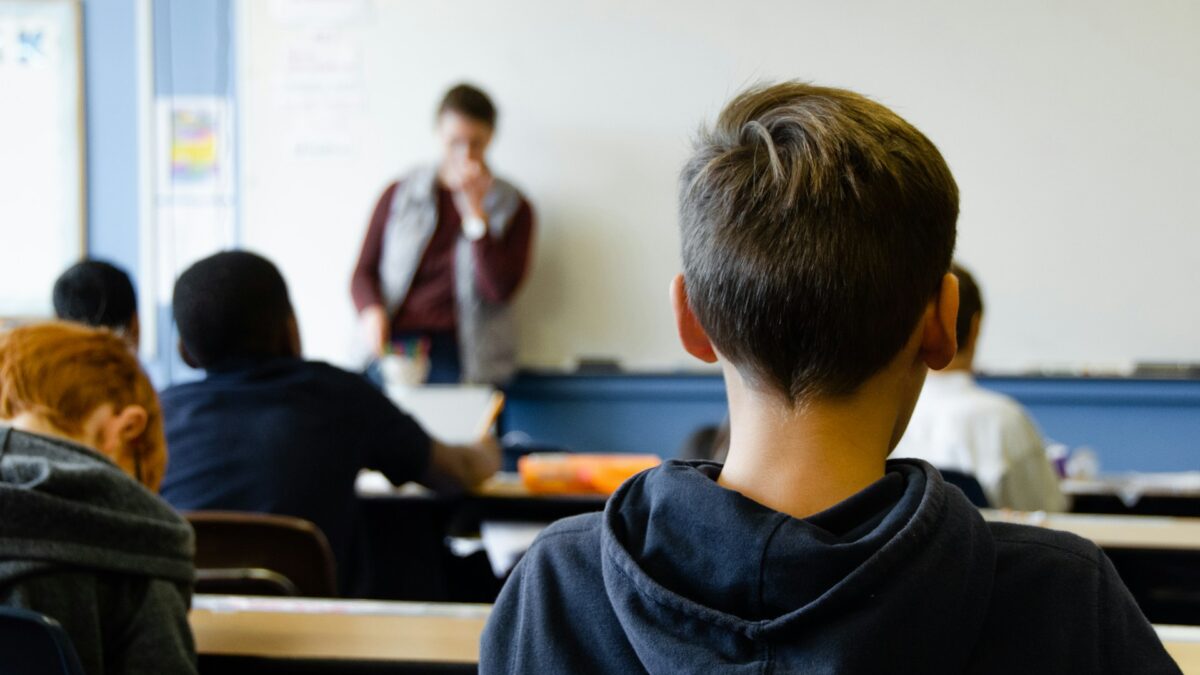
LeBron James’s I Promise school opened Monday in Akron, Ohio. The opening marked the “first day of school for 240 at-risk third-and-fourth graders at the I Promise School … a public, non-charter school, just like the ones James attended as a child.”
Last year, the state of Ohio handed down failing grades for the Akron City school district on its annual report card: a D in achievement, an F in “Gap Closing,” a C in K-3 literacy, an F in “Prepared for Success,” an F in “Graduation Rate,” and an F in progress.
Outside the walls of Akron’s public schools, things are not much better. According to the Akron Beacon Journal, 42.5 percent of all local minors live in poverty. The city’s crime rate is 76 percent higher than the national average. Now, Akron hasn’t had a Republican mayor since 1983. In almost every measurable way, the Democratic Party has failed Akron for the past four decades.
Yesterday, change came at the hands of one man, whose generosity and determination was enough to make a difference in an area where collectivism has failed for almost half a century. Where collectivism saw problems grow unabated, individualism offered to step in and do the hard work itself. It should come as no surprise that LeBron James was the man for the job.
Lebron was born to a single 16-year-old mother. He grew up on welfare, lived in multiple apartments, had a father in prison, and missed 89 days of school in the fourth grade. Because of her inability to care for him, Gloria James allowed LeBron to live with a friend’s family – The Walkers – for an extended part of his childhood. This is where he first experienced, “real family,” where regimens were instituted, where school was prioritized, and where LeBron discovered basketball.
Most agree with the trite aphorism, “education is our future.” But the collectivist solution to the education problem has never worked: more money, more bureaucracy, worse results. This is because sustained progress in education is made when parents answer their call to responsibility and take a vested interest in the future of their children.
This ugly truth – that parents matter, and always have – is something Democrats have attempted to brush under the rug since the 1960’s, when Lyndon Johnson’s Great Society programs and the rise of second-wave feminism attempted to replace the nuclear family with the outstretched arms of a bureaucratic leviathan.
A child needs a stable household. They need two parents. And they need those parents to instill in them a love for education. The data on this is crystal clear: “students who grow up in single-parent homes complete fewer years of education and are less likely to earn a college degree,” and “third graders with absent fathers performed significantly worse in reading achievement.” A similar trend was found when comparing performance on the SAT.
LeBron didn’t have that growing up, and the public school system was unable to simply assume the parental responsibilities necessary to ensure his educational success. And then an individual – Frank Walker – stepped in and assumed the father figure role in LeBron’s life. Who knows if LeBron would be where he is today if that hadn’t happened.
His school opening is one of the clearest examples in recent memory of individualism trumping collectivism: a man of means gives back and builds the nicest public school in northeast Ohio. He establishes a workforce committed to a family environment. The Los Angeles Times reports:
The school provides services to help the kids handle trauma, stress from parents struggling to make ends meet and trouble that comes from too much free time and too little supervision. It also provides job and family services for the children’s parents to help them get GEDs or handle unexpected job loss. The school has a pantry with donations from a food bank, where parents can choose foods to prepare for their families.
The school’s principal Brandi Davis said in an interview: “I think the missing link in public education is that family wraparound support … Because our students come to school and they’re worried about things at home … We want to create that safe, that secure and that caring and loving environment for our families and our students so that our kids can focus on education.”
The impact of the nuclear family – even in a synthesized form born out of emergency – cannot be overstated. This is how change occurs in American education — not with throwing government money at the problem, but with a generation of parents assuming the localized responsibility for the educational performance of their children. When parents fail to act as role models, something else will inevitability take their place. In the inner city, the father figure role is often assumed by gangs. Decades of evidence show public school’s inability to properly pick up the pieces a child’s negligent parents leave behind.
Not everyone is LeBron James. Few are capable of nearly single-handedly building an entire public school in their neighborhood. But we are capable of mending our own fences; we are capable of ensuring our children grow up knowing education is the key to their future.
Beyond that, private citizens, through the power of charity and determination, will always be a more effective means of impacting local schools than the government. As the saying goes, the government cannot possibly care about your kids as much as you do. And so, when the public school system inevitably lets us down in the near future, we ought to question why our first inclination is to transfer more money, power, and more responsibility into their hands.
Collectivism failed a young James a dozen times over before an individual stepped in and changed his life. Now, LeBron has stepped into his I Promise school in Akron and offered to be that individual for 230 at risk youth. And that is nothing short of triumphant.









